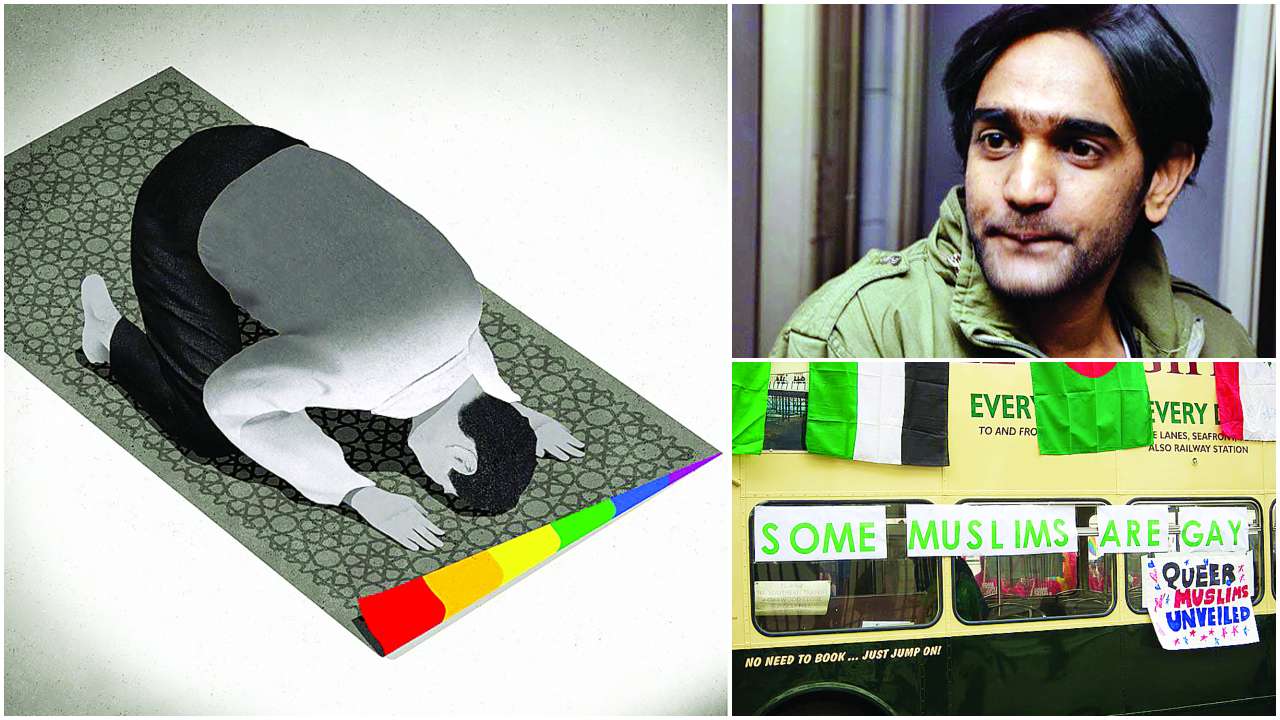
While June marked the Pride month for the LGBTQIA community, it was also the holy month of Ramzan for Muslims. For those who want to negotiate faith and sexuality without letting go of either, The Queer Muslim Project (TQMP) – an Indian networking initiative for LGBTQIA Muslims – had organised a special first-of-its-kind interfaith iftar, which many call "brave."
Assam-native, Delhi-resident Rafiul Alom Rahman, a prominent equal rights activist, who started TQMP feels for queer Muslims struggling with their faith and sexual orientation, thought Ramzan signified an important intersection.
"To us it represents aspects of our identities and experiences, often silenced or made invisible in mainstream activism and scholarship," he says and adds, "Ramzan represents peace, hope, patience and kindness while Queer Pride signifies our resolve to celebrate our diverse identities and experiences in a world constantly trying to box us within binaries. As LGBTQIA Muslims, we also reject the hate that is constantly fueled to keep India polarised."
According to him, the unique iftaar was an attempt to break the shackles of hate and bigotry. "We wanted to invest a few moments of our lives to explore a world that values inclusion and diversity." As a Muslim, he should know.
"A queer person is doubly stigmatised. As if the religious and culturally homophobic upbringing isn't enough, rampant and growing Islamophobia, which sees every Muslim with suspicion, makes it doubly difficult."
In Bengaluru, his thoughts find an echo in Zakir Mansoor (name changed), a software engineer who has been able to explore his sexuality only in the last two years after moving out of his conservative home in Hyderabad. As someone who works for an organisation which takes special care to create an enabling atmosphere for the LGBTQIA community, he admits it is suffocating to be back with his folks when he goes home twice a year.
"I tried to broach the subject of homosexuality in a roundabout manner with my brother, only to find him telling me that this is the worst kind of sin for which people go to hell. After that, I never raised the subject again," he says.
As a devout namazi Muslim, he says he finds choosing between his religious beliefs and his attraction to men frustrating. "It is not going to make me less devout, but this constant signalling of guilt ends up rubbing off at times and I have my moments of doubt. I would work out harder at the gym when wracked with self-doubt so that I was able to block it out. But over time, it has become more and more difficult to do that. I feel TQMP, which is now spreading its wings to Bengaluru from Delhi, offers a good platform for those like me who feel stifled."
Rahman too debunks the use of religion, particularly the Quranic story of Lot used to target homosexuality (Allah asked the prophet Lot to tell people not to rape male travellers. Allah's wrath destroyed those who disregarded the prophet's warnings). "This story is used to say that the Quran is against homosexuality. But one has to remember that homosexuality and sexual assault are not the same thing. In the way we see it now, homosexuality is a complex psychosocial identity," Rafiul says and adds, "Any one-size-fits-all interpretation is very problematically patriarchal. It conveniently creates constructs that suit itself."
Having run into a wall when he sought more information while embarking on a PhD in Sociology at Austin's University of Texas, Rahman remembers, "It was frustrating to find little contemporary sociological work focused on ethnographic research on queer Muslims in India. I realised I'll have to start from the grassroots in the community and dropped out of the PhD programme to come back to India."
His exposure to vibrant queer Muslim movements such as the Muslim Alliance for Sexual and Gender Diversity (MASGD) and Muslims for Progressive Values (which does inclusive readings of Islamic scriptures to provide a more accepting and pluralistic view of the religion) in the West had, however, left a deep impact on Rahman, who wanted to find resonances of inclusive Islam in India. "That's how I started this online platform. TQMP is a safe space for queer Muslims with a presence on social media platforms like Facebook, Instagram and Twitter where it enjoys a huge following."
Has there been a backlash? "Yes, we do get a lot of hate mail, but it is more than compensated for by the love." He doggedly avoids responding with anger to hatred and often uses a rational voice to calmly state facts. "Not that it always works, but it is the only way to go ahead," he says.
"TQMP is as much about the without as it is about the within for me," says Rahman for whom the journey for creating this platform and keeping it sustained has been empowering. "I am not out to my own conservative parents and see all the work I am doing as a way of moving closer to the goal of sitting down and having that important conversation with them."